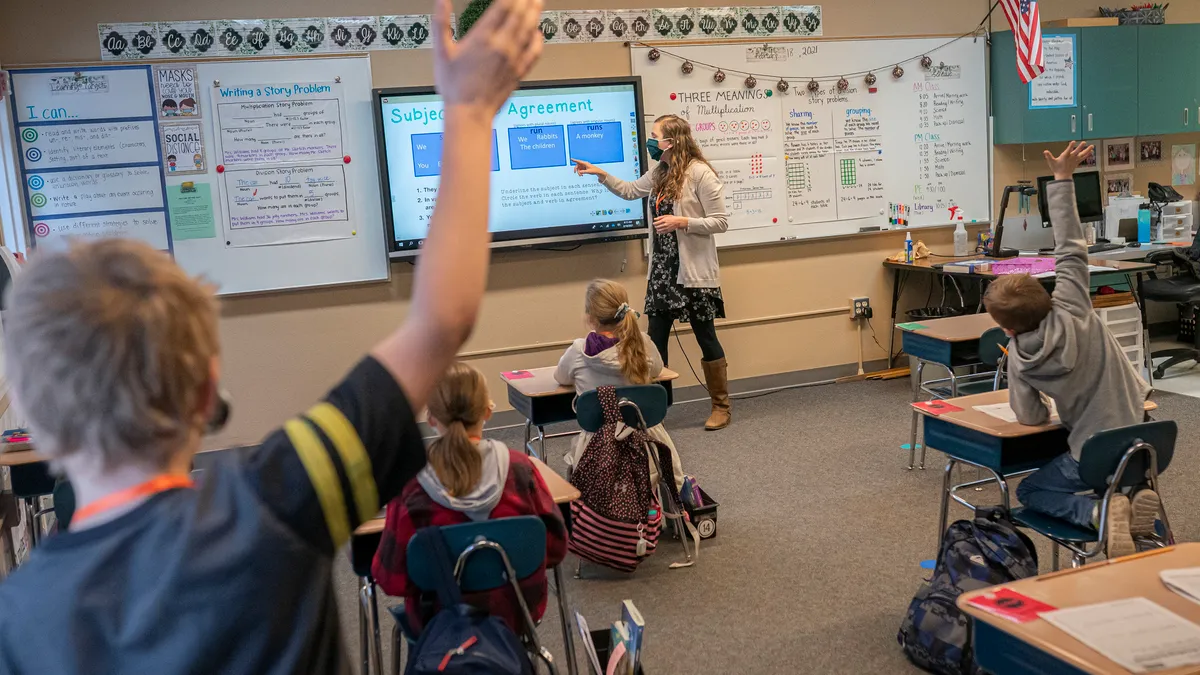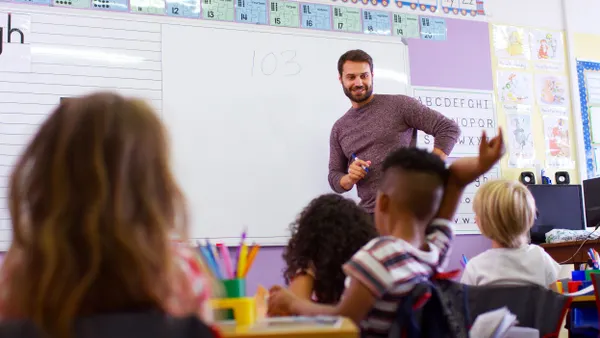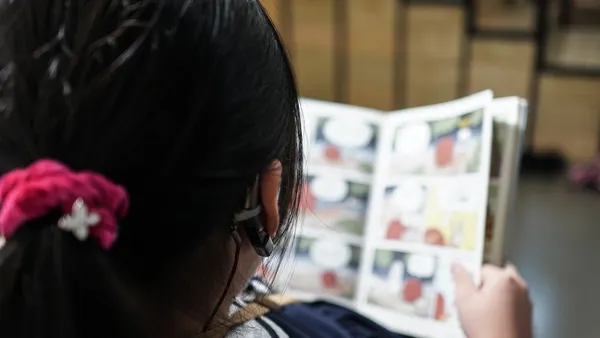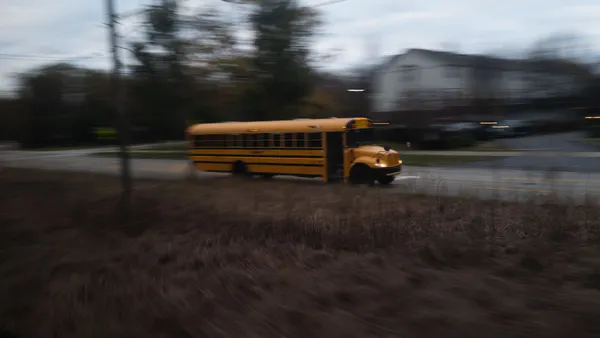Dive Brief:
-
The desire to expand and improve civic education in schools is gaining momentum across the country, but school systems often don’t have clear definitions, standards, professional development or assessment tools to support civic readiness for students, a panel of researchers and educators said Tuesday during a webinar hosted by REL Central, operated by Marzano Research.
-
While the panelists gave examples of actions being taken at the local and state levels to prepare students to become engaged citizens, they also said comprehensive frameworks are lacking because other academic subjects, such as math, typically take priority and because there may be a hesitancy to teach about topics that some may consider controversial.
-
By bringing together diverse stakeholders to discuss goals for civic education, programming can become more normalized and systematized, said panelist Jenoge Khatter, a social studies specialist with the Eugene School District 4J in Oregon. “Instead of holding our breath sometimes around teaching controversy, instead the controversy would be avoiding controversy — that we need to have students explore their positionality on different values and belief spectrums as a part of school,” he said.
Dive Insight:
The panelists emphasized that their mission is not to teach students what to think or do, but to provide instruction on how they can engage in civic life in their neighborhoods, communities, cities, states and country.
“Civic readiness is really preparation for democratic life,” said Wyoming State Superintendent Jillian Balow, who pointed out that as an elected superintendent, she travels across the state visiting various communities. “I'm just a true believer in that the best examples and opportunities for civic readiness really exist in the classroom and our neighborhoods and our communities.”
The Wyoming Department of Education has been discussing the creation of a policy framework for civic education and how to set expectations and provide experiences for students to be ready for civic life, Balow said. There are also conversations about equitable access to high-quality curriculum and trained teachers, she said.
Nebraska educators are also discussing the development of civic education definitions and standards, said Ebony McKiver, social studies education specialist at the Nebraska Department of Education. One goal of this work is to make civic instruction more relevant to students by explaining that civic readiness is not only about being knowledgeable about how to vote in elections or run for office, but that it also means being a good neighbor by paying taxes on time.
“If we can start relating civic readiness to how that influences and looks and affects our everyday lives within our students, I think we’ll go far,” McKiver said.
The webinar discussion follows REL Central’s release of a new resource for state and local school systems to help educators measure or assess civic readiness in students, as well as for use as a jumping-off point for developing civic education initiatives. Thousands of resources were reviewed for inclusion in the new tool and were analyzed for how they assess civic knowledge, skills, behavior or dispositions.
The resource doesn’t define civic readiness, as that might vary in different communities, but it does offer a list of six broader categories to help educators identify relevant assessment tools. Marc Brodersen, managing senior researcher at REL Central, identified those categories as:
- Political behavior.
- Political attitude.
- Civic-related skills and character traits.
- Civic/political knowledge/civic behavior.
- Civic attitude.
The increased interest in civic education seems to come from several events, including the Every Student Succeeds Act’s inclusion of accountability for college and career readiness and other factors beyond academic achievement, said Steven Tedeschi, a researcher at REL Central.
There are also concerns about the stagnant results from the civics portion of the National Assessment of Educational Progress. There is no statistical difference in 8th-grade average scores from 2014 to 2018, and the average score only increased three points between 1998 and 2018, Tedeschi said.
A recent report on states’ civics and history standards by the Thomas B. Fordham Institute, a conservative-leaning think tank, recommended that students have access to comprehensive and balanced civics lessons, and that students should have at least one semester of civics education in high school.








 Dive Awards
Dive Awards




